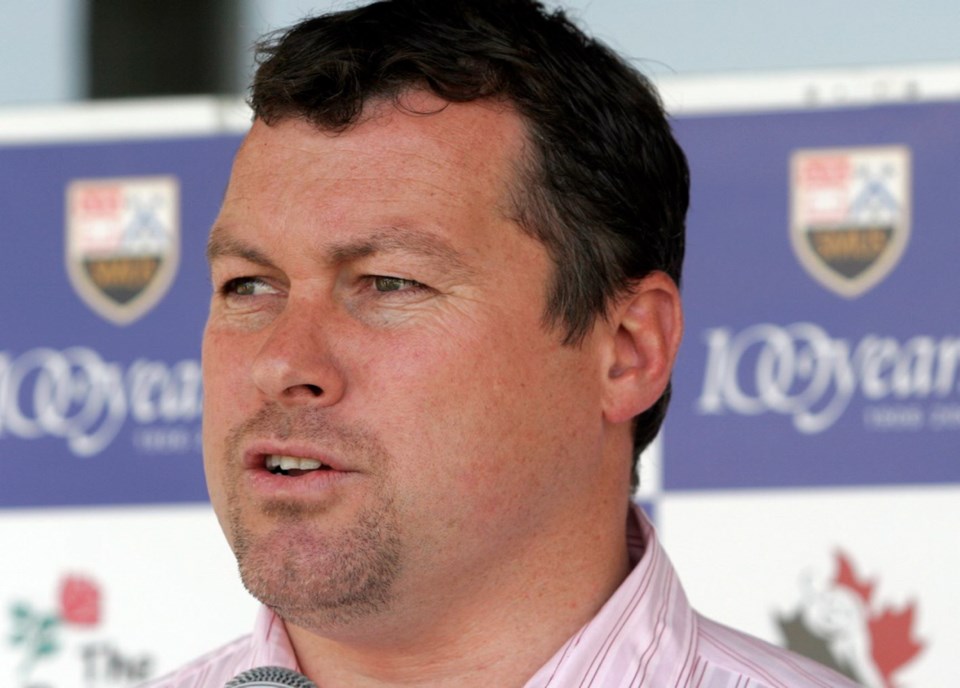Langford-based Canada will never know if it could have redeemed its rugby 2019 World Cup in Japan with a victory over fellow minnow Namibia.
“We would have found out where we stood,” said former Canadian World Cup legend Gareth Rees of Victoria.
The game was cancelled due to Typhoon Hagibis and goes into the books as a 0-0 draw. Canada and Namibia were each awarded two points to finish 0-3-1 in the difficult Pool B, which included New Zealand All Black and South Africa Springboks, along with Six Nations side Italy.
“Our weaknesses were revealed in this World Cup,” admitted Rees, Canadian media manager.
“We need to build a bigger pool of players. We need to find more players. That is the reality of our sport as we faced three fully pro teams in New Zealand, South Africa and Italy.”
Canada, once solidly in the second tier of rugby-playing nations, should realize it is now looking squarely at third-tier status. Any talk of still being second tier flatters Canadian rugby.
Canada has played in all eight World Cups. But the truth is No. 22 Canada might not have made the 20-team 2019 World Cup in Japan as the last qualifier had higher-ranked Romania and Spain not been ruled ineligible because of roster-eligibility infractions during European qualifying.
“There is a chance of not getting to the next World Cup [2023 in France],” Rees said.
That is the brutal truth Canadian rugby has to face up to and confront.
There are, however, moves afoot that might help get Canada to a ninth consecutive World Cup. Chief among them is the growth of the professional Major League Rugby in North America, which should aid the progress of both Canada and the U.S. in what is now a professional game almost everywhere else.
“Our players need a pathway to be professionals,” Canadian head coach Kingsley Jones said as the national team arrived at YYJ on Monday morning.
“It is unrealistic to be a top-20 nation without that.”
Another avenue is to again develop U-23 players in an organized fashion. The old Victoria-based Pacific Pride U-23 program from 1996 to 2005 was credited with lifting Canada into the second tier of rugby and developing many of the players who graduated to play for Canada at the 1999, 2003, 2007 and 2011 World Cups.
Rugby Canada this year reinstated the centralized Pride U-23 program at Westhills Stadium in Langford, which will help Jones as he builds to France 2023 qualifying.
“It will allow Kingsley Jones to check in with the Pride and see the future,” said Rees.
Jones, a former Welsh international who resides in Sooke, has been signed through 2024 as Canadian head coach with an expanded portfolio regarding player development. His goal is to find more players such as Andrew Coe, 23, who appeared in all three 2019 World Cup games for Canada, including one as a starter.
“I was among 18 [Canadian] players in his first World Cup,” Coe said as he unloaded his gear Monday. “That gives us a base to build on for the future. If we keep playing together and working and battling and sacrificing, the results will come.”
Coe mentioned the resurrected Pride U-23 program as being key.
“There are a lot of high school rugby players in Canada, but then there’s a gap when they get out of high school,” Coe said. “The Pride will help fill that gap for elite young players.”
Coe said the main difference he noted between Canada and teams such as New Zealand, South Africa and Italy was “skill under pressure.”
You hone that in the crucible of pro play, which is why the MLR will be crucial to the development of Canadian rugby players.
With the tumultuous 2019 World Cup done, typhoon and all, Canada now looks to 2023 and keeping alive its streak of never having missed a World Cup. But with nations such as the U.S., Uruguay and Brazil coming on in the Americas, the challenge has never been greater.



